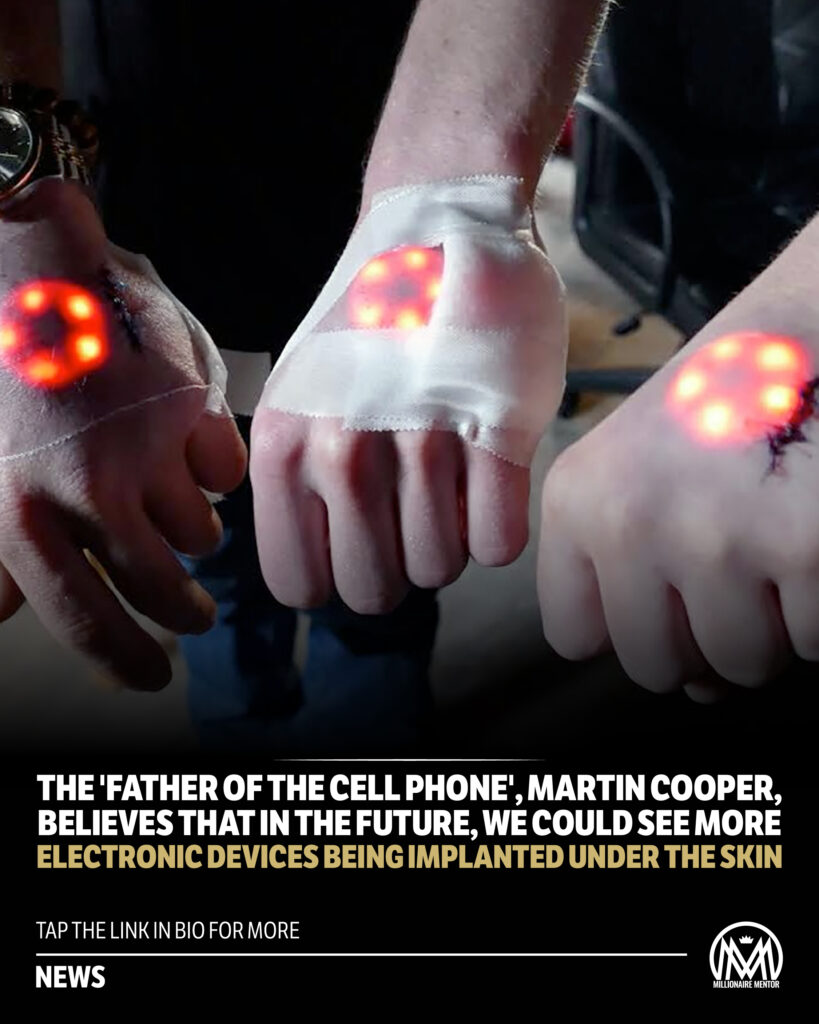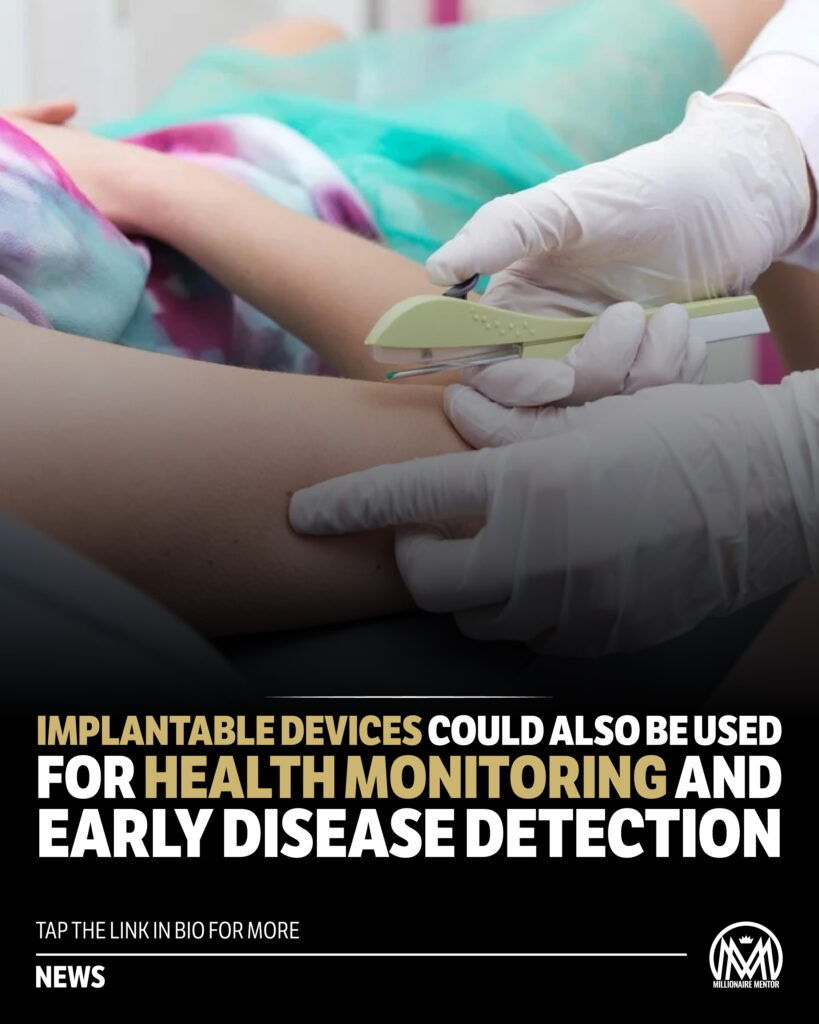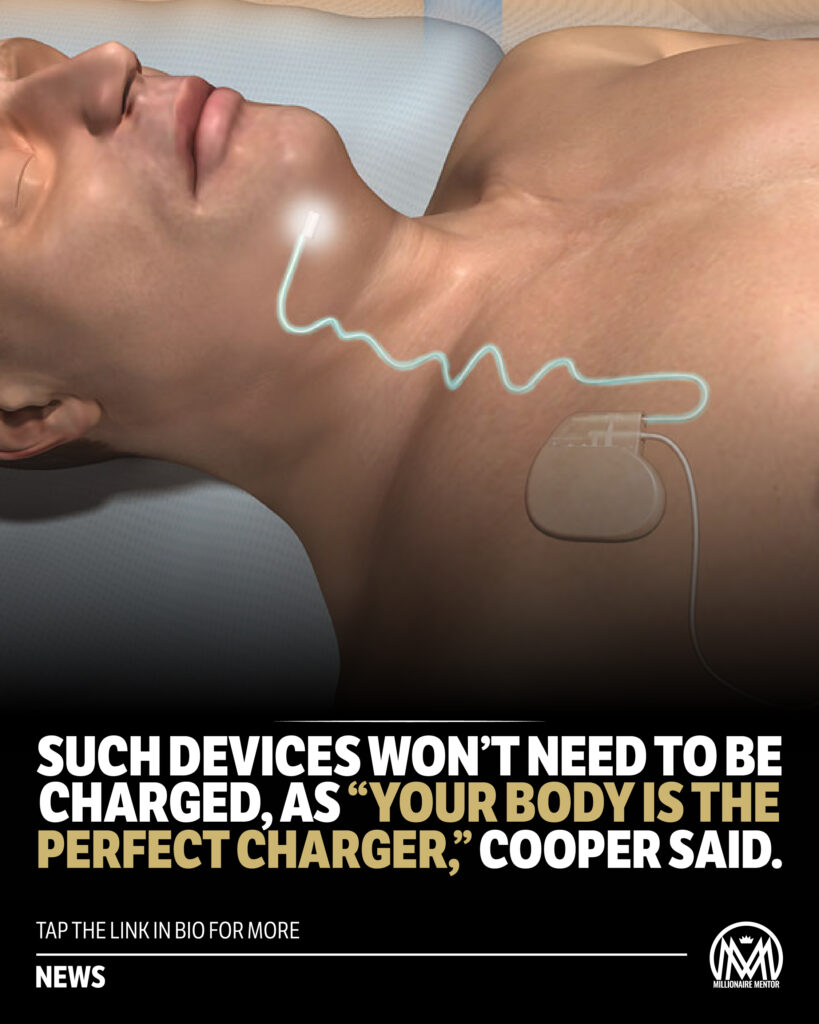The ‘Father of the cell phone’, Martin Cooper, has been in the technology industry for over 50 years, and he has made a bold prediction about the future of electronic devices. Major Points According to Marty Cooper, who is widely regarded as the father of the cell phone, future generations will have devices “attached under the skin of their ears.” Cooper made this prediction to CNBC during the Mobile World Congress in Barcelona.
Father of the cell phone Cooper has suggested that we may one day see devices implanted under our skin. This idea has sparked both curiosity and concern about what this means for the future of technology.
The concept of implantable devices is not entirely new. In fact, there are already medical devices such as pacemakers and insulin pumps that are implanted under the skin to treat various health conditions. However, Father of the cell phone Cooper’s vision goes beyond medical applications and suggests that we may one day see a wider range of devices implanted under the skin for various purposes.
One of the most compelling benefits of implantable devices is the potential for a more seamless and intuitive way to interact with technology. Father of the cell phone Martin Cooper believes that these devices could eliminate the need for external devices like phones or smartwatches, offering a more integrated experience. For example, instead of carrying a phone in your pocket, you could have a device implanted in your hand that allows you to make calls and send messages with a simple gesture.
Another potential benefit of implantable devices is in the field of health monitoring. Implantable devices could provide real-time data about a person’s health and enable them to take proactive steps to prevent illness. For example, an implanted device could continuously monitor a person’s blood glucose levels and provide alerts when levels are too high or too low, helping them manage their diabetes more effectively.
Despite the potential benefits, there are also concerns around the risks and ethical implications of implantable devices. One of the biggest concerns is the potential for infection or rejection by the body. Unlike external devices, implantable devices are in direct contact with bodily fluids, which increases the risk of infection. Additionally, if the body identifies the implanted device as a foreign object, it could reject it, leading to complications.
Cooper who is regarded as Father of the cell phone claimed that the modern smartphone has become overly complicated, with multiple programs and a screen that doesn’t fit the human face’s curvature.
Another concern is around privacy and data security. Implantable devices could potentially transmit sensitive data about a person’s health or behavior, which could be intercepted by hackers or misused by third parties. As such, there are questions around how this data would be stored, who would have access to it, and how it would be protected.
There are also ethical considerations to take into account. For example, the idea of implanting devices under the skin raises questions around autonomy and consent. Would people be willing to have a device implanted under their skin, and would they fully understand the potential risks and benefits of doing so? Additionally, there are questions around how implantable devices could exacerbate existing social inequalities. For example, would only the wealthy be able to afford the latest and most advanced implantable devices, leaving others at a disadvantage?
Despite these concerns, the idea of implantable devices continues to generate interest and discussion. Many technology companies are already investing in research and development in this area, and it is likely that we will see more innovation in the years to come. However, it is important that we proceed with caution and carefully consider the potential risks and benefits before embracing this new technology.
Father of the cell phone Martin Cooper’s prediction about implantable devices has sparked both curiosity and concern about the future of technology. While the idea of implantable devices offers many potential benefits, including a more seamless and intuitive way to interact with technology and improved health monitoring, there are also significant risks and ethical considerations to take into account. As such, it is important that we proceed with caution and carefully consider the potential implications before embracing this new technology. Ultimately, it will be up to individuals, policymakers, and the technology industry to work together to ensure that implantable devices are developed and deployed in a responsible and ethical manner.












